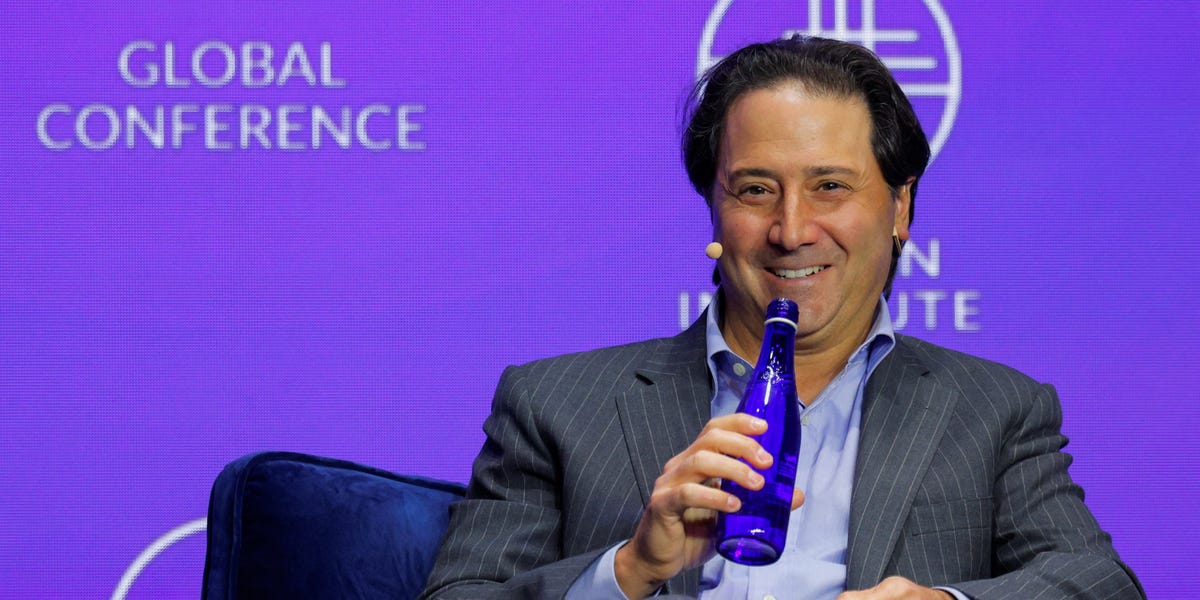Saratoga’s Viral Water Bottle: The Unexpected Star of Milken 2023
At the prestigious Milken Institute Global Conference 2023 in Beverly Hills, an unassuming hero emerged—a reusable water bottle by Saratoga. The sleek, eco-friendly vessel became the talk of the event, sparking discussions about sustainable innovation and viral marketing. Conference attendees, including Fortune 500 CEOs and policymakers, championed the bottle as a symbol of practical climate action, proving that even everyday objects can drive meaningful conversations.
How a Humble Accessory Stole the Spotlight
Amid panels discussing trillion-dollar market trends and AI breakthroughs, Saratoga’s water bottle gained traction through organic endorsements. High-profile speakers like BlackRock’s Larry Fink and philanthropist Melinda Gates were photographed carrying it, triggering a social media frenzy. Instagram posts with #SaratogaBottle surpassed 15,000 mentions during the four-day event, according to Brandwatch analytics.
“This wasn’t a staged marketing ploy—it was authentic peer influence at scale,” noted Dr. Evelyn Cho, a behavioral economist at Stanford. “When influential figures adopt a product naturally, it creates a ripple effect far more powerful than traditional advertising.”
The bottle’s design features contributed to its virality:
- Patented temperature control keeping liquids cold for 48 hours
- Modular components allowing easy customization
- Integrated smart sensor tracking hydration levels
The Sustainability Message Behind the Hype
Beyond its aesthetics, the bottle’s environmental credentials resonated with attendees. Saratoga disclosed that each unit prevents an estimated 1,200 single-use plastic bottles annually. With 2,500 bottles distributed at Milken, the potential waste reduction exceeds 3 million plastic bottles per year—a figure that aligns with the UN’s Sustainable Development Goal 12 for responsible consumption.
“We’re seeing a paradigm shift where sustainability becomes a status symbol,” remarked environmental strategist Carlos Mendez. “Five years ago, luxury meant exclusivity. Today, it’s about demonstrating ecological awareness through actionable choices.”
Critics, however, question whether such products merely enable “green theater.” A 2023 MIT study found that 62% of corporate sustainability pledges lack measurable targets. “Symbolic gestures matter, but they must translate to systemic change,” cautioned Dr. Priya Agarwal of the Climate Accountability Institute.
The Marketing Lessons From Saratoga’s Success
Saratoga’s unintentional marketing coup offers three key insights for brands:
- Authenticity trumps paid placements: Genuine product adoption by opinion leaders drove more engagement than sponsored content
- Functionality fuels sharing: The bottle’s smart features created natural conversation starters
- Timing amplifies impact: Launching during a high-visibility event maximized exposure
Industry Reactions and Competitive Responses
Competitors like S’well and Hydro Flask have since announced upgraded product lines. Meanwhile, venture capital interest in sustainable consumer goods surged 27% quarter-over-quarter, per PitchBook data. “This validates our thesis that climate tech isn’t just about energy—it’s about reinventing daily life,” said TechStars managing director Rachel Kou.
Retail analysts predict the reusable water bottle market will grow from $8.1 billion in 2022 to $12.4 billion by 2027, with premium smart bottles accounting for 35% of sales. Major retailers including Target and Amazon have already expanded shelf space for the category.
What’s Next for Sustainable Consumer Trends?
The Saratoga phenomenon reflects broader shifts in consumer behavior. A 2023 NielsenIQ report shows 73% of millennials will pay premium prices for sustainable goods—up from 58% in 2020. Brands are responding with:
- Blockchain-enabled product passports verifying sustainability claims
- Subscription models for product upgrades and recycling
- AR tools visualizing environmental impact
As climate concerns intensify, expect more everyday objects to become vectors for change. “The water bottle is just the beginning,” says trend forecaster Lila Rothschild. “Next, we’ll see viral sustainability movements around clothing, electronics, even furniture.”
For executives seeking to replicate Saratoga’s success, the lesson is clear: In today’s market, purpose and profit aren’t just compatible—they’re inseparable. To stay ahead of sustainable innovation trends, subscribe to our weekly industry briefing.
See more Business Focus Insider Team

